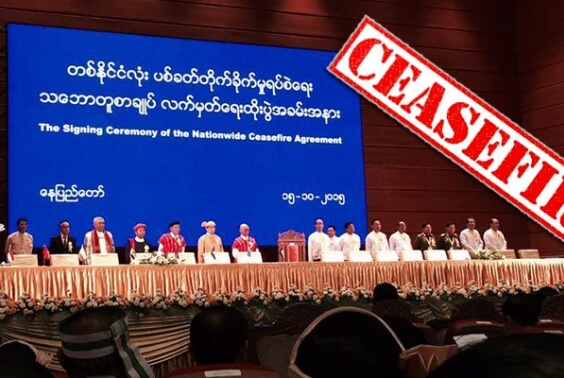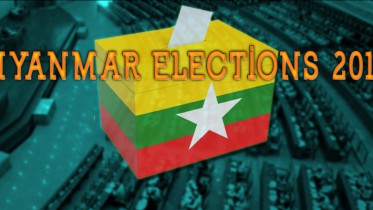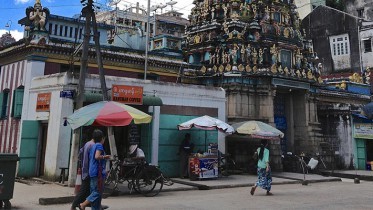- MYANMAR
The European Sanctions Policy for Myanmar: Did it work?
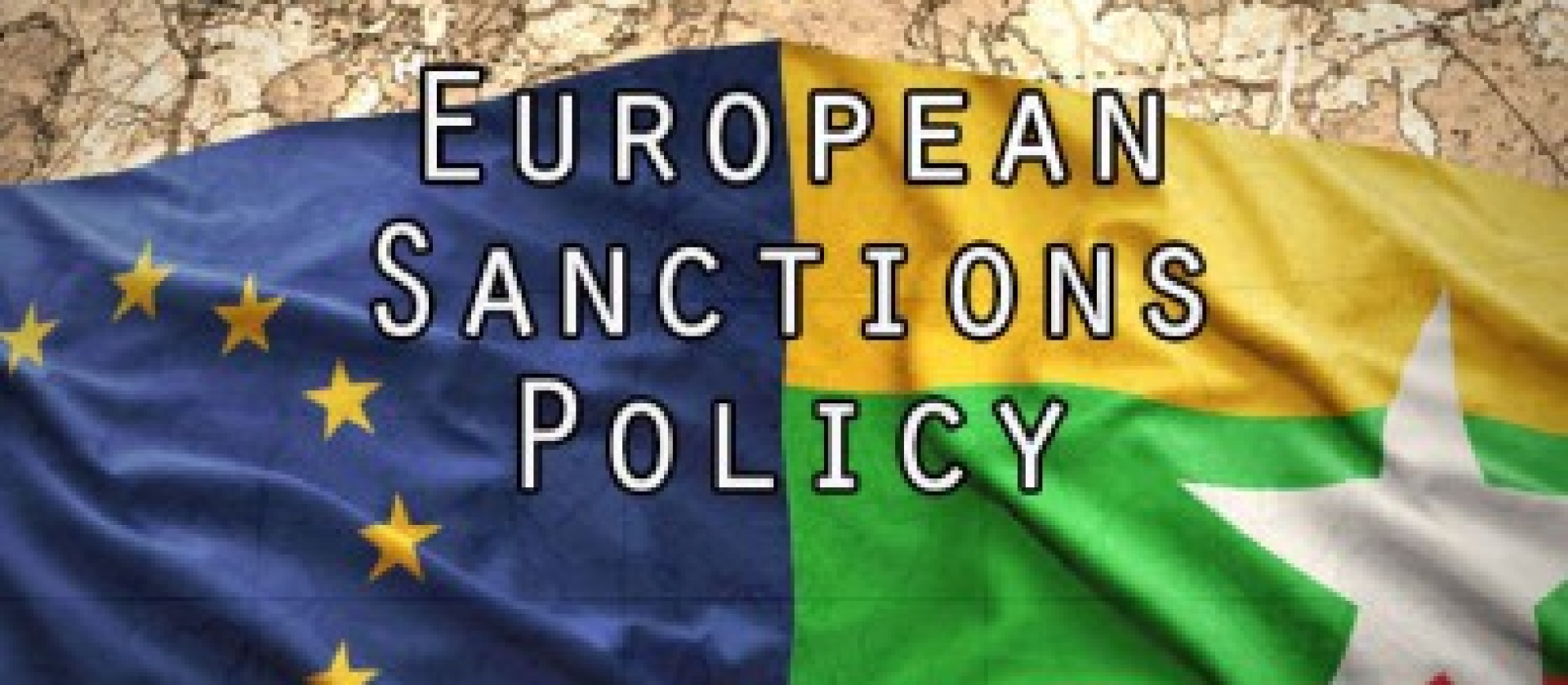
In just a few years Myanmar has significantly brushed up its international status and image. The military regime has transformed into a nominally civilian government and has taken important steps to place the country on the road towards “normalization” and democracy. But it is clear that numerous challenges remain in Myanmar’s transition. Progress towards national reconciliation has been slow, and the level of trust between government and insurgent ethnic groups is low. Persecution of the Rohingya Muslims continues. Political reform including constitutional revision and effective political representation of all ethnic minorities remain obstacles.
Nevertheless, Western countries have fully embraced and supported the “Myanmar Spring”. The European Union (EU), for example, promptly opened a representative office in Yangon, and in April 2013 lifted all its sanctions against the country, with the exception of the arms embargo. EU member states are currently busy adjusting their development strategy for Myanmar, in order to support Myanmar’s state-building process but also to improve the business climate for European companies. In Europe many observers credit Western restrictive measures against the Myanmar regime for playing an important role in paving the way for the country’s opening up after the 2010 elections. For the EU’s External Action Service, sanctions showed the Myanmar government “that long-term isolation was undesirable”. But were European sanctions really effective in influencing the behavior of the Myanmar regime?

The European External Action Service was set up to manage the EU’s response to crises
European “smart” sanctions
Interestingly, when EU sanctions were in place, few argued that the Western policy had an effect on bringing about change in Myanmar. Most often they were seen as further marginalizing the influence and bargaining power of Western countries. Sanctions were even described as counterproductive and only increasing anti-Western sentiment. EU sanctions in particular were seen as having negligible impact, primarily because they were limited and mainly symbolic. Unlike the United States, the EU avoided comprehensive trade and investment bans. Instead the EU focused on targeted or “smart” sanctions, which are directed towards identifiable leaders and elites and aim to spare the population at large. They excluded trade and investment embargoes due to their perceived indiscriminate effects. Targeted sanctions included those affecting separate individuals, those that affected specific sectors of the economy, and diplomatic sanctions such as visa bans.
The most obvious reason to choose for “smart sanctions” was the humanitarian concern and the possible effects that strict economic sanctions could have on the wider population. As least as importantly, however, stricter trade and investment sanctions could have harmed European business interests.
Until 2007 the limited economic impact of EU sanctions was obvious. The arms embargo had little impact given the willingness of other governments, including China and Russia, to supply arms. Myanmar’s removal from the General System of Preferences marginally affected the local textile industry, thereby even penalizing the population at large, but did not cover the export of energy. EU trade in sectors yielding profits for the regime continued. The limited investment ban in government-controlled groups that came into being in 2004 did not work retroactively, allowing countries, including the UK and France, to continue their activities in Myanmar. Importantly, sanctions never covered the oil and gas extracting industries. The highly important state-run Myanmar Oil and Gas Enterprise (MOGE) that included substantive French and British investments was never targeted, for example.
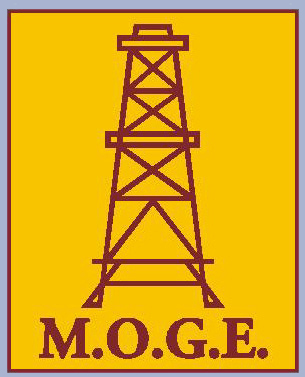
The Myanmar Oil and Gas Enterprise was never target by the EU for sanctions.
In addition, sanctions isolated the regime, bringing about a “bunker mentality” and strengthening military unity. The junta labeled the international support for the opposition as Western interference and neo-colonialism. And they gave the regime a scapegoat for economic mismanagement, unemployment, and poverty. As repeatedly stated by current President Thein Sein, sanctions did not harm the Myanmar leadership, but had a disastrous effect on ordinary people, leading to unemployment and migration to neighboring countries.
Furthermore, diplomatic sanctions including visa bans cut both ways. They effectively ostracized the regime internationally and robbed it of legitimacy, but at the same time they precluded dialogue and engagement. The EU proclaimed the importance of “critical dialogue”, allowing, for example, a visa ban exception for lower-ranked officers to attend inter-regional summits between the EU and Asian countries. Nevertheless, this dialogue was doomed to fail as the highest-level and most powerful officials were excluded from participating.
Stigmatizing the regime, supporting the opposition
Notwithstanding the lack of overall effect, sanctions did have some positive outcomes. First of all, sanctions had the important moral or political effect of underscoring the refusal to endorse a regime and its practices. Together with the US, the EU at least succeeded in stigmatizing Myanmar and reducing the country’s international legitimacy. Opposition leader Aung San Suu Kyi, for example, repeatedly pointed out the significant psychological impact of sanctions, depriving the regime of international legitimacy. The fact that the country could not be represented at the highest level during international summits, or that ambassadorial exchange was inexistent, for example, were certainly thorns in the side of the leadership. Under pressure by the West, also the Association of Southeast Asian Nations (ASEAN) gradually grew weary of Myanmar’s pariah status and increased pressure by taking a critical stance towards the regime and conducting quiet diplomacy in spite of their official policy of non-interference. ASEAN, which Myanmar joined in 1997, successfully compelled Yangon in 2005 to skip its turn in the rotating chairmanship for 2006.
Second, sanctions were originally put in place as a bargaining chip for the democratic opposition, to persuade the junta to engage with opposition parties. The fact that both the US and the EU paid careful attention to the advice of Aung San Suu Kyi may have increased the junta’s awareness of the necessity to include her in negotiations, in addition to giving moral support and encouragement to the opposition and pro-democracy groups.
Balancing China
Third, the most important positive role played by sanctions was an indirect one. As a result of the Western isolation policy Myanmar developed closer ties with its neighbours, including Thailand, India, and China. In 2010 Myanmar’s trade with China and Thailand comprised almost 60 per cent of its total trade volume, and China alone accounted for nearly 40 per cent of Myanmar’s imports. China is sometimes referred to in Myanmar as “pauk-phaw”, meaning “brother” or “next of kin”. Two decades of Western sanctions offered China the opportunity to significantly strengthen the bonds with its neighbor, through trade, investment, infrastructure, and diplomatic support. As a political ally it blocked, for example, UN Security Council Resolutions in 2007 and 2008 that demanded an end to human-rights violations. Offering soft loans, debt relief and technical cooperation, China facilitated trade and the construction of oil and gas pipelines as well as hydropower projects. It gained access to the Indian Ocean for the province of Yunnan in Southwest China. The bilateral relation boosted trade figures. Between 2010 and 2011 alone, the trade volume between both countries grew by 45 per cent, and China accounted for over one third of all foreign direct investment (FDI) in Myanmar.
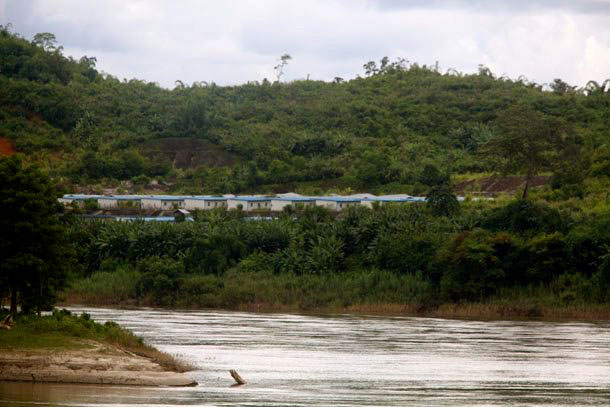
A town built to house Chinese staff for the Myitsone dam project in Kachin State.
(Photo: Seamus Martov / The Irrawaddy)
China’s increasingly strong presence and influence went hand in hand with growing feelings of distrust, and exacerbated lingering negative images of the Chinese in Myanmar. Public suspicion of China has been rooted in history and enforced by feelings of xenophobia and a nationalistic scepticism of the motivations of foreign powers. Furthermore, division of profits was highly uneven, with China reaping the bulk of the benefits of its investments in Myanmar, while often contributing to environmental damage and displacement of local populations. Not least importantly, China often sent its own labourers for investment projects in Myanmar, leading to a Sinicization process, visible in both migration and real estate ownership.
As a result the Myanmar government may have become eager to achieve a more balanced foreign economic presence in Myanmar. In 2011 Myanmar took the first steps to re-emerge from the long shadow cast by its powerful neighbour, and to curb an excessive dependence on China by re-engaging with the US, the EU, Japan and other countries. As an important symbolical gesture, the large-scale, Chinese-funded Myitsone dam project in the north of Myanmar was suspended in late September 2011, after wide public protest against its environmental impact and displacement of over 10,000 people. In the summer of 2014, President Thein Sein cancelled a project for a Chinese railway line linking Yunnan to the Bay of Bengal. Furthermore, the controversial Monywa mining project serves as an illustration of a growing number of popular protests against the social, economic, and environmental effects of Chinese investments in Myanmar.
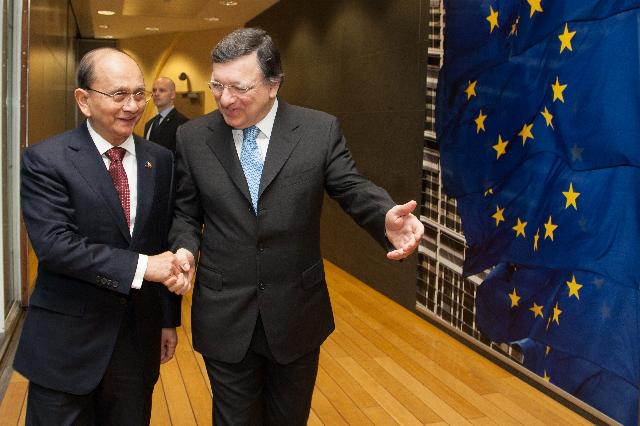
Visit of U Thein Sein, President of Myanmar, to José Manuel Barroso, the 11th President of the European Commission. Photo European Commission
That is not to say that relations with China will not remain strong. According to Burma Rivers Network, a local NGO, there are at least 27 Chinese companies investing in over 20 ongoing projects to construct dams on Myanmar’s rivers, with much of the hydropower they produce destined for export to China. A dual pipeline to transport oil and gas from the Bay of Bengal to Yunnan, giving China its highly-desired outlet to the Indian Ocean, was taken into use in October 2013. Nevertheless, it is clear that Myanmar is trying to curb the dominant Chinese influence that was the result of the Western sanctions policy. An increasingly vocal local population, in addition to rising competition from Western and Japanese firms, will further have a strong impact on Chinese investment.
In conclusion, can we say that sanctions played a role in spurring on change in Myanmar? European “smart” or “targeted” sanctions ultimately had little direct impact. They did not significantly harm the regime, and major business activities with European countries continued as before. In addition, they isolated the regime, and prevented a constructive dialogue from taking place. Nevertheless, indirectly sanctions did exert an influence. They played a psychological role, creating a desire on the part of the Myanmar leadership to regain international legitimacy. Sanctions were also important as a clear sign of support for the opposition. Last but not least importantly, they may have stirred a desire among the Myanmar leadership to balance foreign investments in the country and decrease the dependency on China.

Senior Research Fellow, Finnish Institute of International Affairs
Specially-Appointed Associate Professor, Osaka University




